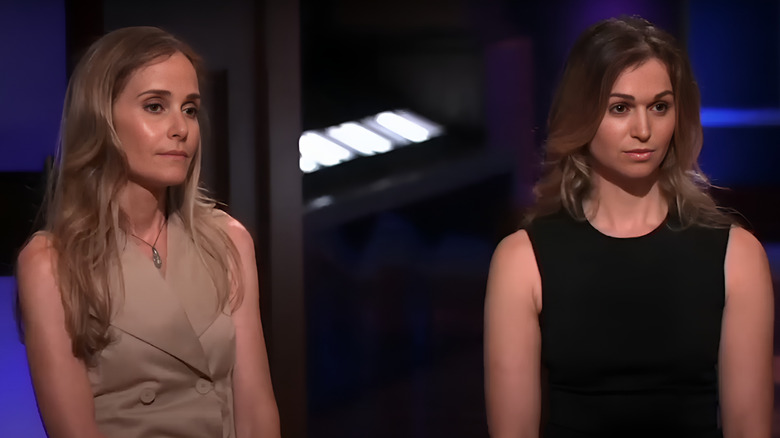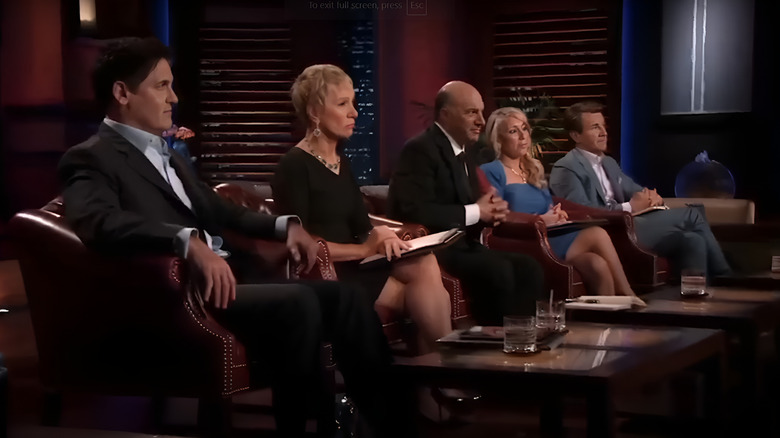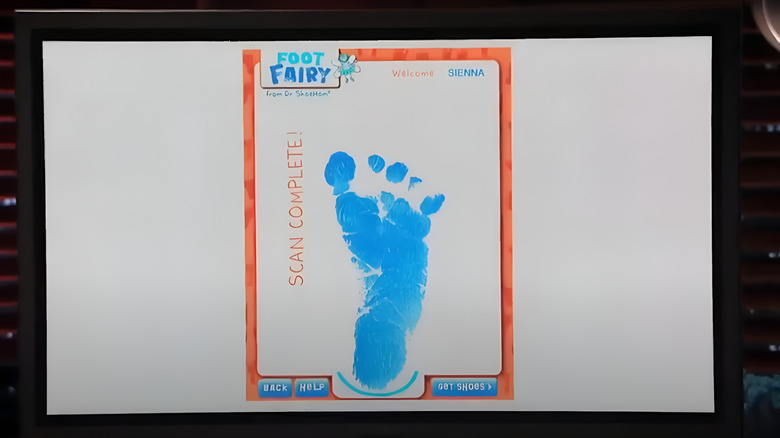Shark Tank's Foot Fairy: Where Did The Business End Up After The Show?
In the old-school method of measuring a child's feet, parents would wrangle their little ones onto a piece of paper, trace around their constantly moving toes with a pencil, and then use a ruler to guess their shoe size. It was like slapstick playing out in living rooms across America (if we ignore the inaccurate sizing and multiple trips back to exchange ill-fitting shoes). Dr. Sylvie Shapiro, a podiatrist, and Nicole Brooks, a pediatrician, saw this chaotic ritual as a problem begging for a solution, leading them to create Foot Fairy to help parents measure their children's feet accurately.
The app was designed to work with iPad's touch screen functionality. All you need is to have your kid place one foot on the iPad, and it will measure and suggest the preferred shoe size to order online. In the season 5 finale of "Shark Tank," the creators of Foot Fairy made their pitch. Shapiro, who specializes in foot health, teamed up with Brooks, with years of experience treating children, to woo the Sharks, aiming to scale with $75,000 in exchange for 15% of their company. Mark Cuban was intrigued and decided to raise the stakes, offering $100,000 for a 40% equity in the company. However, the deal fell apart during due diligence, a phase where everyone takes a closer look at the business prospects before finalizing the agreement. Still, this case does not compare to the business Cuban calls the worst execution in Shark Tank history.
Challenges at Foot Fairy
Even without a sealed deal, Foot Fairy's stint on "Shark Tank" turned out to be a golden ticket to visibility (like these super-successful businesses that rejected their "Shark Tank" offers). When Dr. Sylvie Shapiro and Nicole Brooks pitched their app, they valued Foot Fairy at $500,000, basing this on their ask of $75,000 for a 15% stake. The buzz from the show was real; just three weeks after launching, the app had already racked up an impressive 13,144 downloads. All was going well till Foot Fairy began facing serious technical and operational challenges that threatened its survival. And it all stemmed from the fact that neither Shapiro nor Brooks sufficiently made up for not being app developers.
The app was plagued with critical bugs that compromised the user experience, making it unreliable for accurately measuring kids' shoe sizes. A major blow came from the app's inability to correctly track commission payments, a key part of its revenue model. This system was supposed to collect a percentage of sales from online retail partners like Zappos. However, due to technical glitches this feature failed, preventing the app from generating the expected revenue and leading to financial instability. In essence, Foot Fairy struggled to scale up. Aside from the technical issues, the app couldn't grow its user base or enhance its features to stay competitive. Its reliance on just one revenue source — commissions from shoe sales — made the business fragile, especially as the underlying technology faltered.
Closure of Foot Fairy
Just six months after their "Shark Tank" episode aired in 2014, Foot Fairy shut down. Missing out on Mark Cuban's $100,000 investment and his strategic guidance, the company couldn't tackle its operational problems or fund necessary improvements to the app. The breakdown of the deal really spotlighted a common struggle for startups; turning a big-time opportunity into lasting success.
Although appearing on "Shark Tank" gave Foot Fairy plenty of exposure, it didn't set them up for long-term viability. The app lacked a strong technical core and a business model that could scale up, making it tough for them to keep up with market demands and competition. This left the app in a tight spot, struggling to navigate the challenges that came their way. They should have implemented the brand strategy of the most successful company to ever appear on "Shark Tank."
Since Foot Fairy shut down, the shoe-sizing tech market has really taken off. Now, several apps use cutting-edge tech like AI and augmented reality to measure feet more accurately. This surge shows that there's still a big demand for reliable shoe-sizing tools, but it also points to much tougher competition. The founders of Foot Fairy have moved on to new projects; Dr. Sylvie Shapiro continues to practice podiatry and has even launched her own line of footwear. Meanwhile, Nicole Brooks has shifted gears and co-founded a men's skincare brand.


